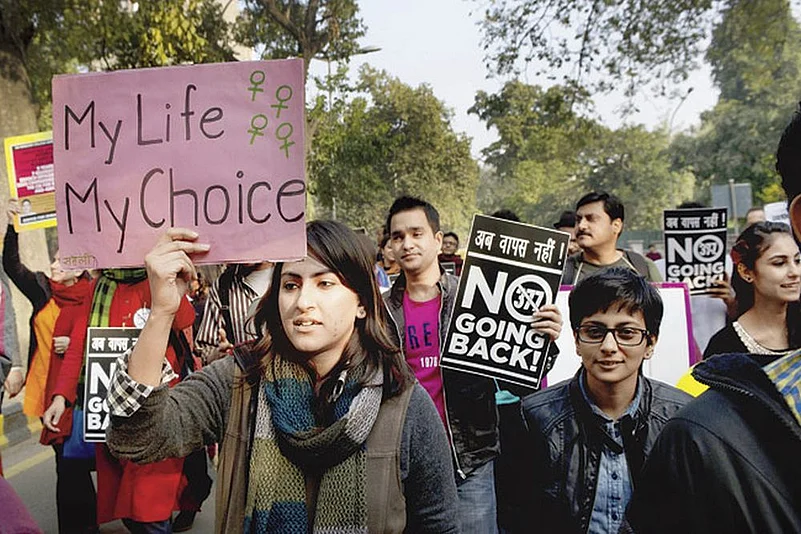Gay sex among consenting adults is not a criminal offence, the Supreme Court unanimously ruled on Thursday.
The top court decriminalised part of the Section 377 of the Indian Penal Code that criminalises consensual gay sex, saying it was irrational, indefensible and manifestly arbitrary.
A five-judge constitution bench headed by Chief Justice Dipak Misra unanimously
held that the Lesbian, Gay, Bisexual, Transgender and Queer (LGBTQ) community possess the same constitutional rights as other citizens of the country.
We bring to you an explainer on the law that many see as a relic of the British era.
1. Section 377 came into force in 1862. It says that “Whoever voluntarily has carnal intercourse against the order of nature with any man, woman or animal, shall be punished with imprisonment for life, or with imprisonment of either description for a term which may extend to 10 years, and shall also be liable to fine.”
2. After years of legal battle, the Delhi High Court in July 2009 de-criminalised consensual homosexual acts in private by declaring as unconstitutional a part of Section 377 of IPC that criminalises unnatural sex. The court said “the section denies a gay person a right to full personhood…”
3. However, in December 2013, the Supreme Court set aside the HC verdict. Justice GS Singhvi (since retired) upheld the constitutional validity of Section 377 and said it was for the legislature to take a call on the controversial provision.
4. Under 377, consensual sexual acts of adults such as oral and anal sex in private between heterosexuals also are currently treated as unnatural and punishable.
5. The Supreme Court held out hope for the LGBT community when in April 2014, the top court directed the government to declare transgenders a ‘third gender’ and include them in the OBC quota. The court said they should have all rights under law, including marriage, adoption, divorce, succession and inheritance.
6. In February 2016, a curative petition was submitted by Naz Foundation and the then Chief Justice of India, T.S. Thakur decided that the petitions will be reviewed again by a constitutional bench consisting of five members.
7. Gender rights activists say that Section 377 violates different articles of the Indian Constitution -- Article 14 which guarantees equality before law to all individuals; Article 15 which ensures that no person shall be discriminated against on the basis of caste, gender, creed etc and Article 21 which ensures the right of life and liberty to all the citizens of the country.


























